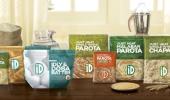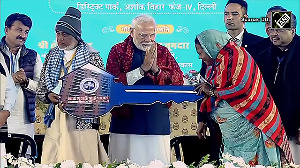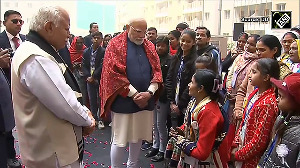According to government sources, frozen parota (layered flatbread) does not qualify as a staple item and is not eaten by the poor. It is consumed by a class that can afford to pay taxes, hence falls in the 18 per cent category with the likes of biscuits, pastries, and cakes.

Facing flak over a judicial authority ruling that frozen parota would attract a goods and services tax (GST) rate of 18 per cent as against 5 per cent on roti, the government on Saturday clarified that seal-packed and branded items attracted higher taxes in line with standard global practice.
According to government sources, frozen parota (layered flatbread) does not qualify as a staple item and is not eaten by the poor. It is consumed by a class that can afford to pay taxes, hence falls in the 18 per cent category with the likes of biscuits, pastries, and cakes, they argued.
The Authority for Advance Ruling, Karnataka, recently held that frozen (and preserved) wheat parota and Malabar parota, which are sold in ambient and frozen form with a shelf life of 3-7 days, are a distinct product and shall attract 18 per cent GST. The ruling led to widespread criticism on social media on Friday.
“It may be noted that frozen parota is preserved, seal-packed, and branded, and is usually sold at higher prices… Even items like cheaper biscuits, pastries, and cakes attract GST at the rate of 18 per cent. Frozen food would be more comparable to such items. Frozen food cannot be compared with plain roti or plain parota served in restaurants or taken as staple food, or eaten by the poor on a day-to-day basis,” a finance ministry official said.
The rate of frozen and preserved parota was earlier discussed in the 37th meeting of the GST Council. The Council did not recommend any reduction in the GST rate for frozen and preserved parota, saying these were sold by the organised sector.
The official said it was a global practice to tax processed or packaged food at a higher rate. “For example, milk is tax-free, but tetra-packed milk is taxed at 5 per cent and condensed milk at 12 per cent,” the official said.
“FMCG companies such as Nestle, Hindustan Lever, Coco-Cola, and Pepsi make significant profits on sale of packaged food items by selling them at higher rates as these are largely consumed by the economically better-off,” said the official.
Therefore, plain roti or parota served in restaurants or provided by takeaways gets the same treatment and attracts 5 per cent GST only.
“Frozen and preserved parota is not a like product when compared to plain roti, khakra, etc. Also, this order does not decide the rate of ordinary plain parota,” said the official.












 © 2025 Rediff.com -
© 2025 Rediff.com -